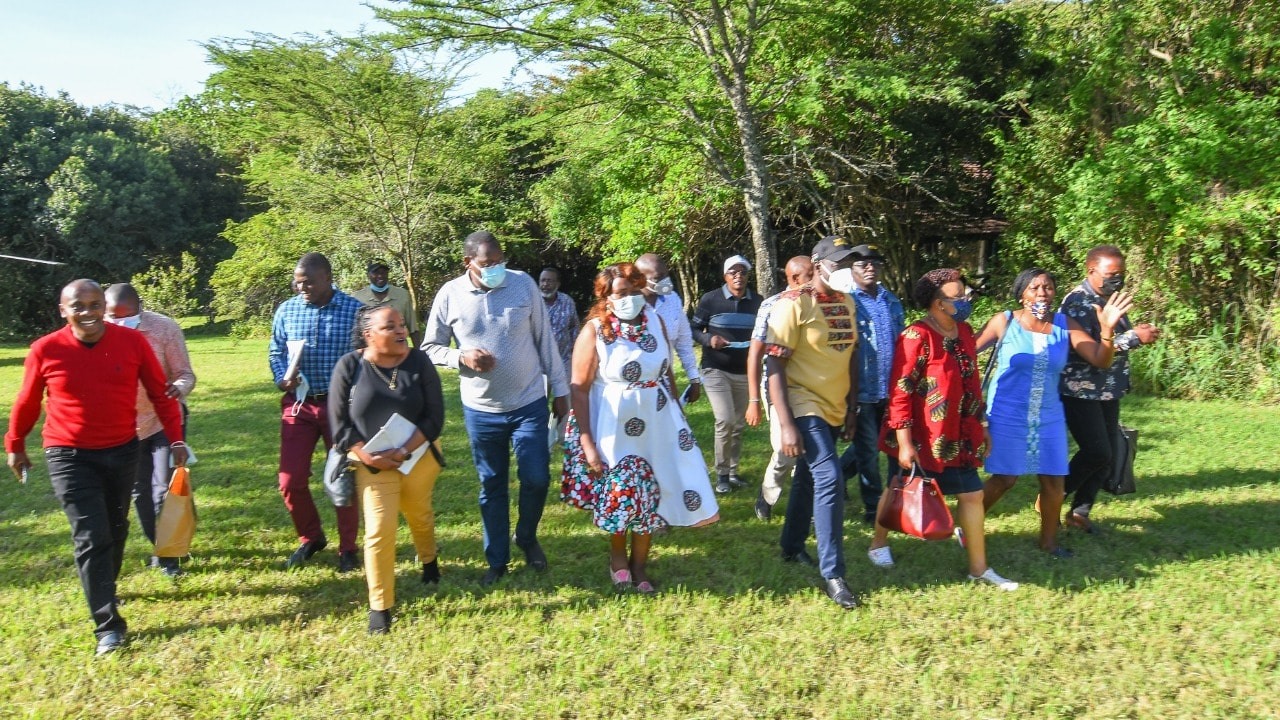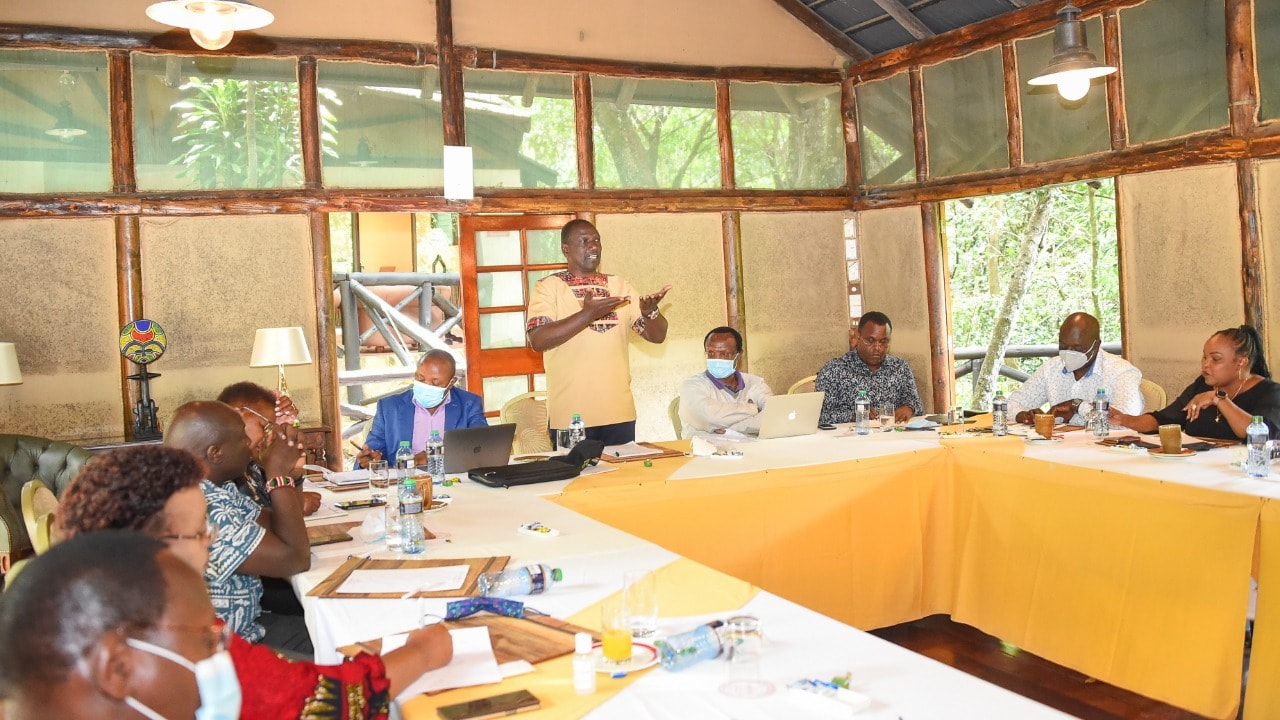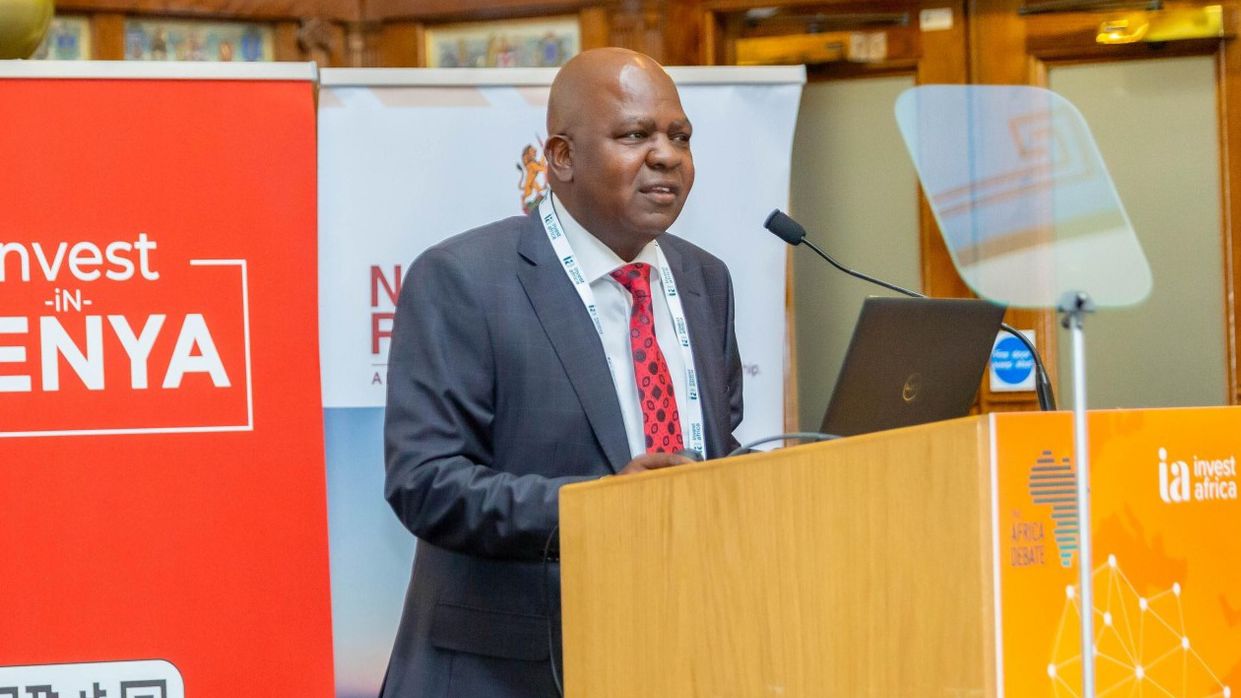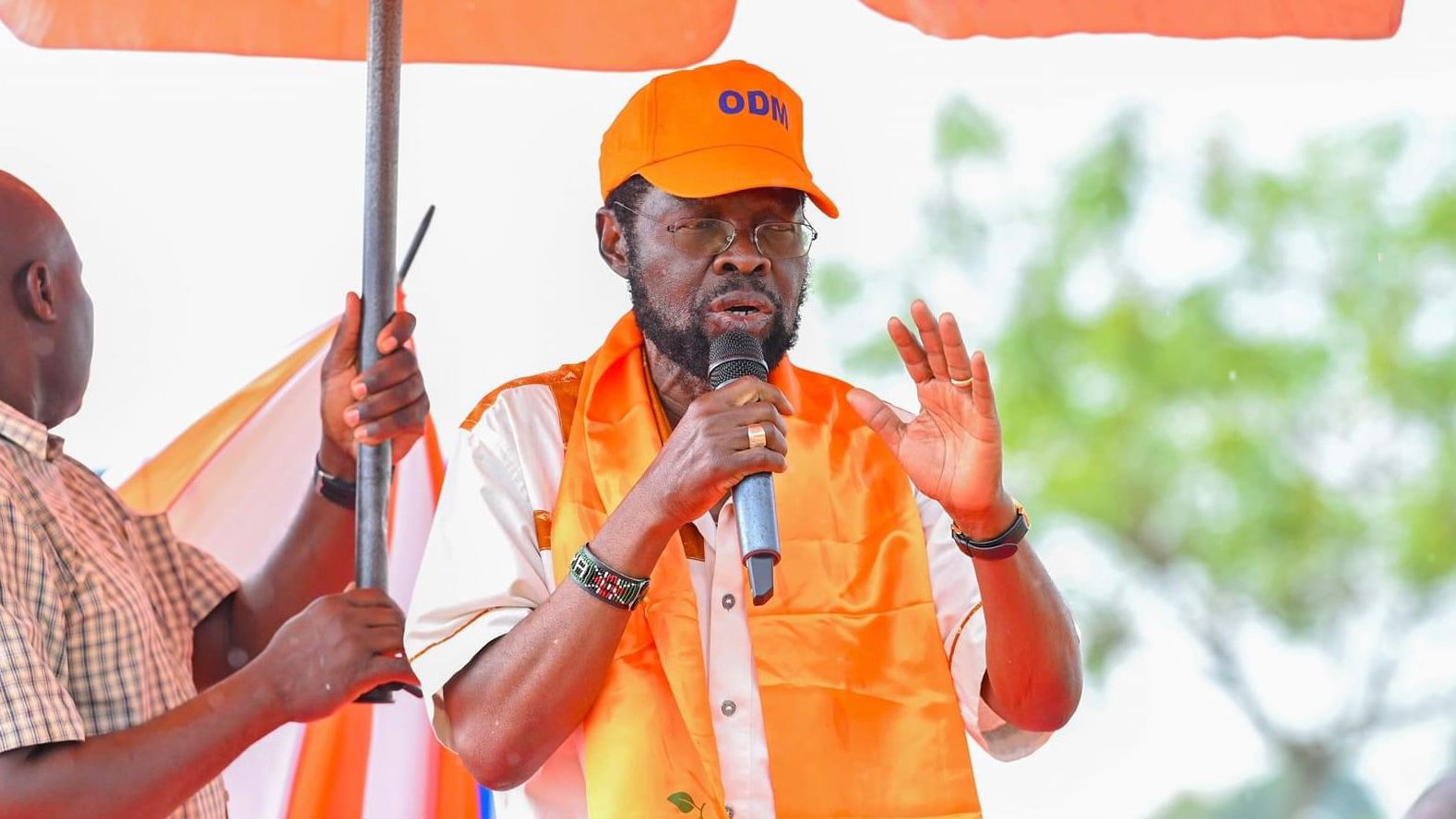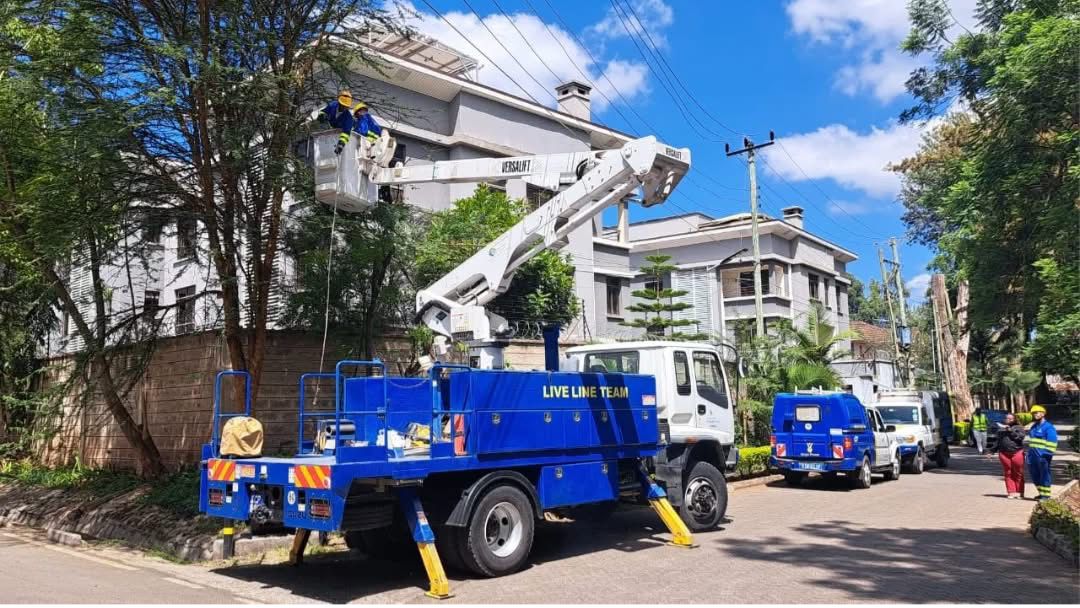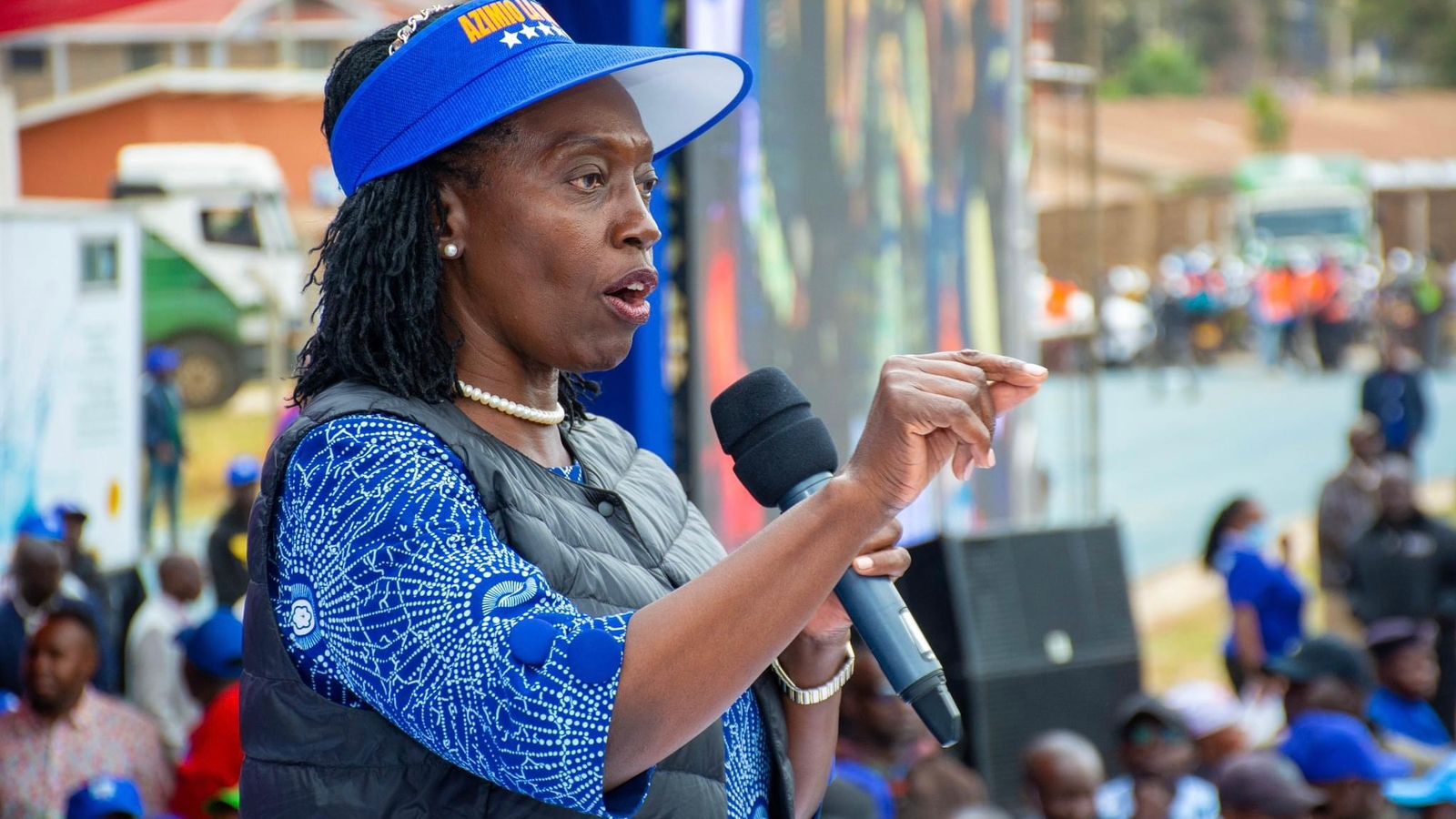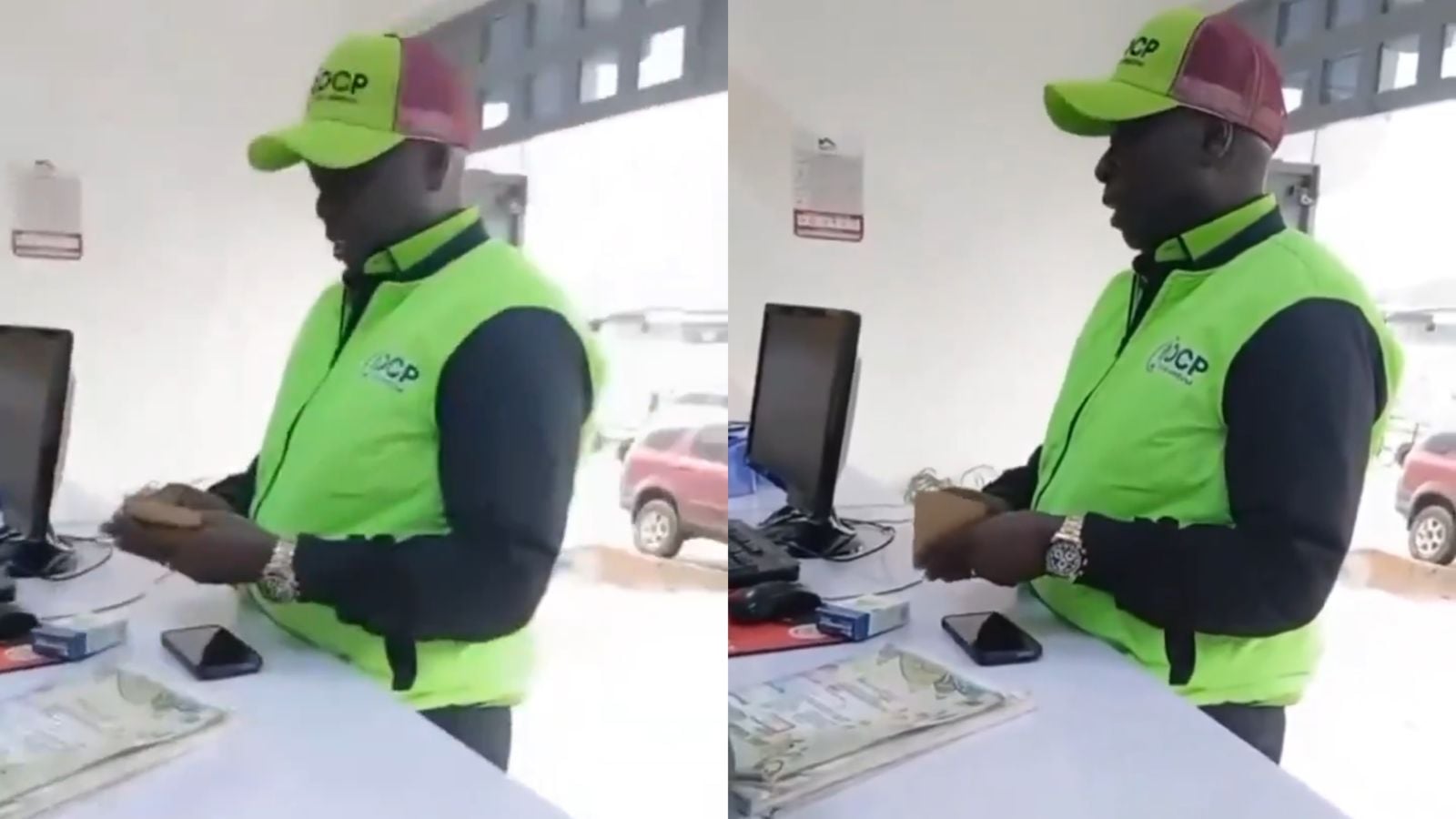Deputy President William Ruto, economist David Ndii and a team of 11 Mount Kenya leaders retreated to Masaai Mara from April 30 to May 2, 2021.
Two weeks ago over 60 legislators allied to DP Ruto from the 11, Mount Kenya counties met at the home of Mathira member of parliament Rigathi Gachagua.
The MPs elected a team of 11 members to negotiate with the DP on behalf of the region on his political and economic plan for the region.
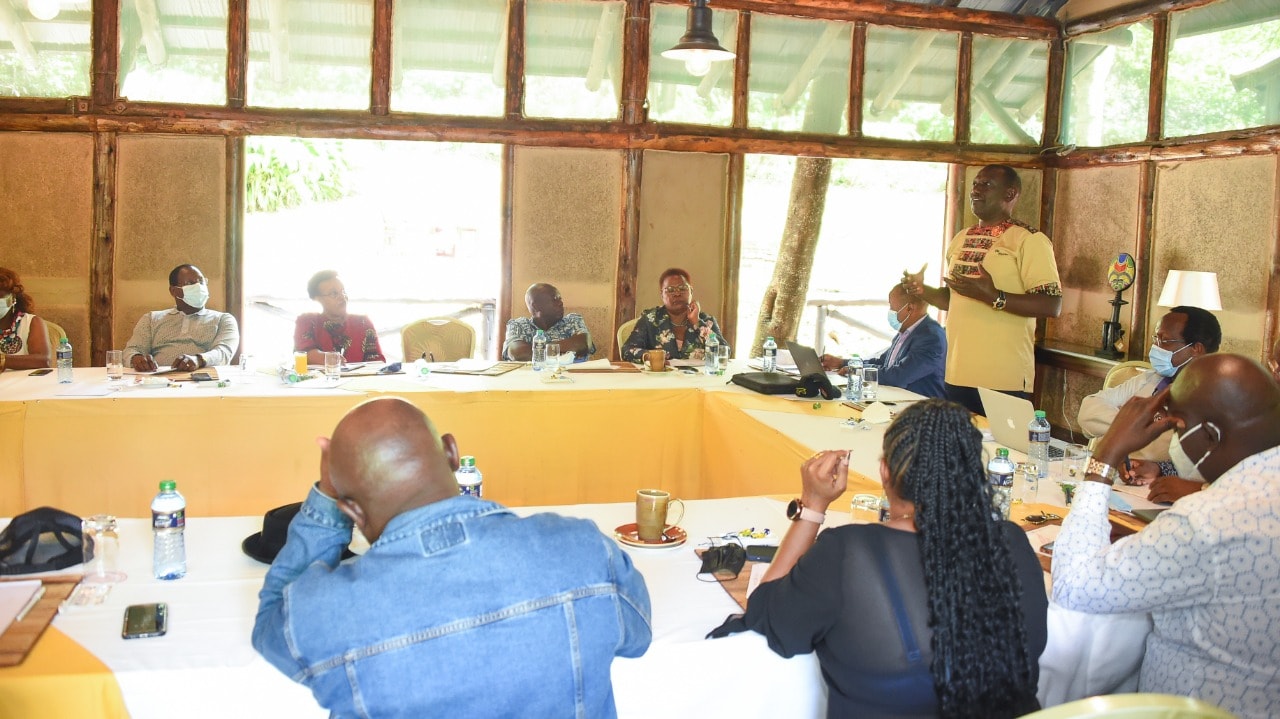
Deputy President William Ruto (standing) addresses legislators from Mount Kenya and a team led by Economist David Ndii at Maasai Mara. |Courtesy| Facebook|
Read More
A team led by Economist David Ndii presented to DP, an economic strategy to revive and grow the country's economy.
Here is the DP's full statement.
The partnership we created in 2012/2013 was premised on two fundamental principles:
1) To transition our country from the shackles of ethnic mobilization that bred division and hate to a new political paradigm centered on national, all-inclusive consensus with an all-encompassing development agenda,
2) To make political competition issue-based with tangible and measurable development outcomes.
It is on these two platforms that this administration has proceeded from 2013 to date. As we focus into the future, it is necessary to appreciate and evaluate the many successes, challenges and shortcomings and plan the future accordingly.
From the experience of the past nine years and building on the foundation that has been laid, it is now necessary to progress in two fundamental ways
1) On this non-ethnic, non-regional and non-divisive political foundation, it is absolutely necessary to proceed to a conversation about ordinary Kenyans, the Hustlers - the traders, boda boda, mama mboga, farmers, pastoralists, wheelbarrow, taxi-drivers and mkokoteni owners among others – a new conversation that is not a about leaders, their positions, their ambitions and their private and personal interests.
We must engineer a fundamental paradigm shift from the perennial politics of personalities, positions, and power to a candid, open and frank engagement with the people on the economy, their aspirations and their future. Over the years, political positions have been created, power has been shared this way and that way, leaders’ interests have been catered for but this has not improved the lot of the overwhelming majority of Kenyans. The solution is definitely elsewhere: A new political conversation about ordinary people, not leaders and a new bottom-up economic model not trickle down economics!
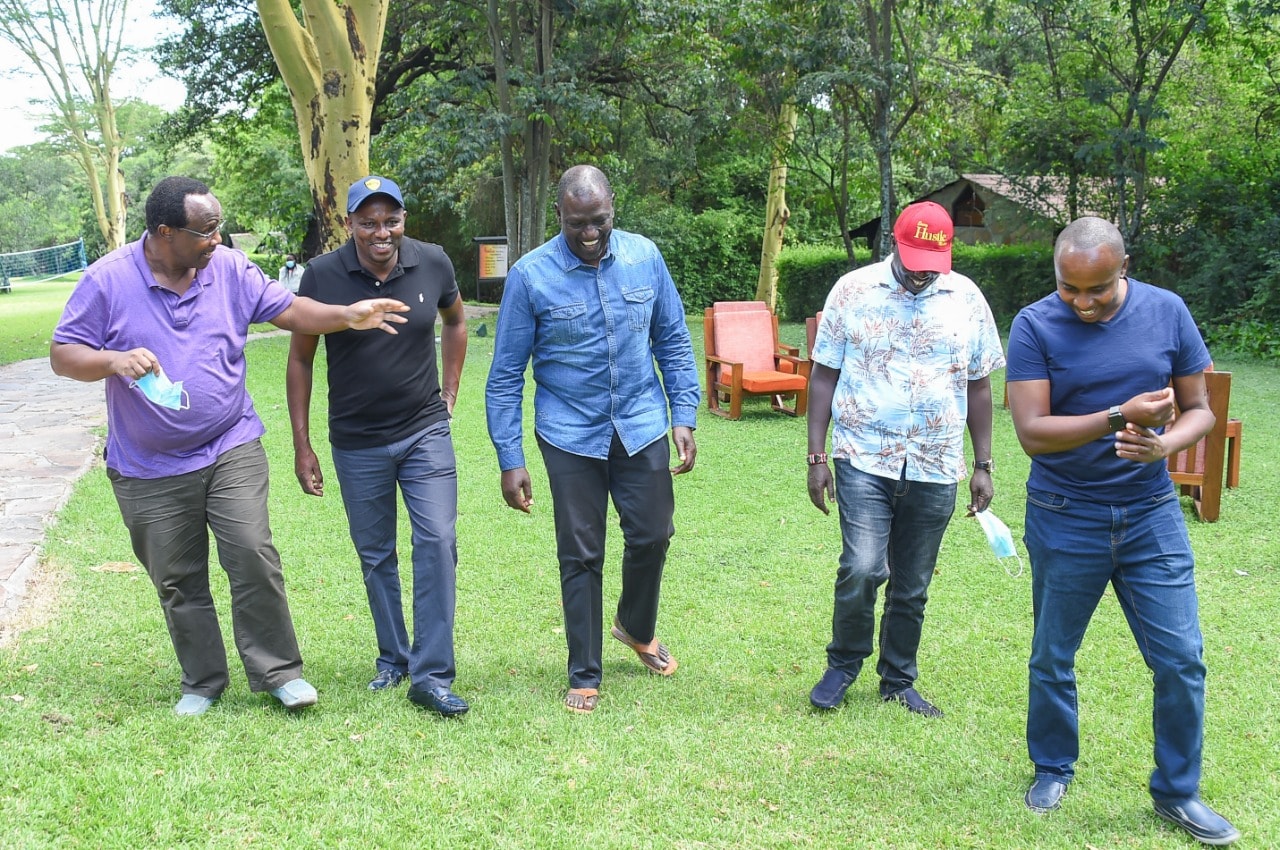
We must acknowledge both the ethnic political model-it is our turn-and its counterpart trickle-down economics continue to impede our full political, economic, and social development potential. Many Kenyans imprisoned in ethnic political ghettos disguised as political parties and chaperoned by tribal kingpins are denied the opportunity to participate meaningfully in the political processes that make critical decisions about their future.
The trickle-down model excludes millions of citizens from the economic mainstream thereby denying them the opportunity to realize their full potential. This model has failed to create enough jobs, expand opportunities and bring prosperity. Instead, it has fostered a hostile environment that has made it difficult for enterprise, trade, business, creativity, and initiative to thrive.
Today, the number of excluded Kenyans is in the order of 10 million, half our national workforce. A country that leaves half its people behind cannot go far.
To get these 10 million Kenyans out of the rut, a new approach is not only necessary and desirable, it is an existential imperative.
Our country is at the stage when it should be reaping the demographic dividend—the stage in the country’s population growth cycle when the largest cohorts of young educated people are entering the workforce. The investments we have made in infrastructure will not be realized if we do not harness this potential. We know from the experience of other countries that if we do not seize this moment, this potential demographic dividend can easily flip into a demographic catastrophe.
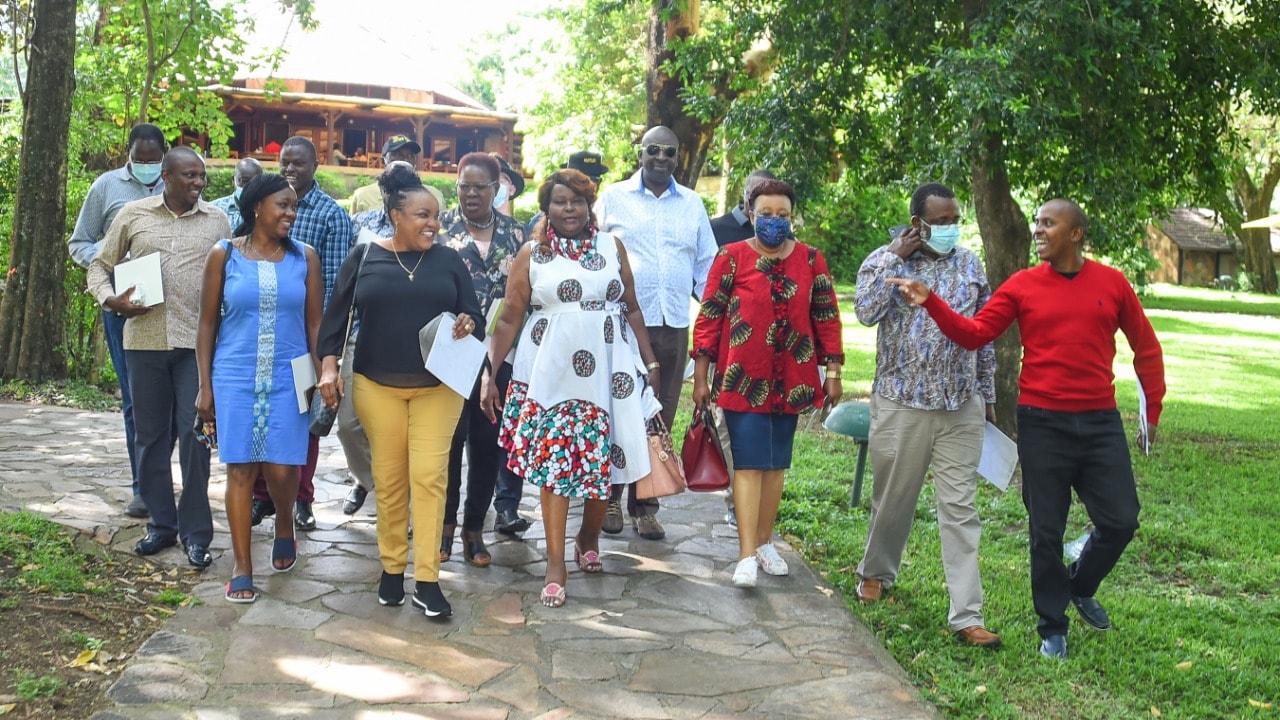
This is a journey we must start now - a mission to board Kenyans at the bottom of the pyramid and those pushed to the fringes onto an economic train that provide upward mobility for everyone-the novel BOTTOM UP economic model.
This process will be comprehensive, people-centered, time-sensitive and innovative. We will tap into the huge reservoir of knowledge, talent and expertise available to inform our policy process with knowledge that is grounded in our economic reality.
It is therefore our collective and patriotic duty as citizens, in our various capacities – professionals, workers, leaders - to work together and fashion the best possible future for ourselves and our children.
This process of engagement and consultation has kicked off with a meeting of a committee of leaders representing 11 counties from the Mt. Kenya region. We have had a robust, extensive, frank, and candid engagement on the single most important destiny-changing discussion in our country’s economic history.
This engagement will progressively cover all counties, all regions, and all sectors of our economy. We have planned similar engagements and consultations with the Western, Northern, the Coast, Nairobi, Eastern, Nyanza, and Rift Valley regions.
Today, we have structured the framework for these consultations and agreed as follows:
1) The most important conversation is on the empowerment of small businesses, increasing farmers’ earnings, and creating an enabling environment that rewards hard work, nurtures creativity, and promotes initiative for all to flourish
2) To ensure that an all-inclusive conversation takes root, we have agreed on a framework of engagement beginning at the grassroots with farmers, entrepreneurs, traders, cooperatives, other producer and business associations encompassing all the key agricultural value chains in particular tea, coffee, dairy, fresh produce, rice and miraa
3) Patriotic Kenyans of all shades – scholars, professionals, subject matter experts, business, and community leaders – will be brought on board to facilitate this comprehensive, all-encompassing national engagement.
This conversation will culminate in a national economic charter that embodies aspirations of, and our commitments to Kenyans at the grassroots and especially the hustlers at the fringes of our economic life.
This is the new conversation. This is the new politics.
